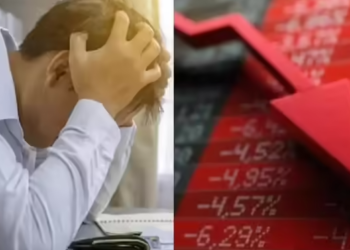Two U.S. senators have launched a bold call for a deep investigation into a web of crypto deals, AI tech transfers, and Trump-era connections that could shake national security. Elizabeth Warren and Jack Reed point to a suspicious timeline involving billions in funds, UAE investments, and a company co-founded by a key Trump ally. What secrets lie behind this high-stakes mix?
The Push for Investigation
Senators Elizabeth Warren and Jack Reed fired off a letter this week demanding federal agencies dig into Steve Witkoff’s role in a massive deal. Witkoff, a real estate mogul and Trump confidant, co-founded World Liberty Financial, a crypto firm tied to the Trump family.
The heart of the probe focuses on a $2 billion investment from UAE-linked MGX into World Liberty Financial. This cash was used to buy the firm’s USD1 stablecoin, which then helped secure a stake in Binance, the giant crypto exchange.
Lawmakers worry this setup might have influenced U.S. approval of advanced AI chips to the UAE just weeks later. That approval came from the White House, raising red flags about possible quid pro quo.
Warren and Reed, both Democrats, argue Witkoff’s dual hats as a diplomat and business owner create a clear conflict. They want the Justice Department and Treasury to check for any illegal ties.
Details show the timeline is tight. In May, Witkoff’s son announced the UAE deal at a Dubai event. Soon after, AI chip shipments got the green light.

Ties to Trump and Crypto Power Plays
World Liberty Financial burst onto the scene in October 2024, backed by Donald Trump and his sons. The company promises to boost crypto use in America with its stablecoin pegged to the U.S. dollar.
Trump owns 38% through a family LLC, filings reveal. This stake could benefit from pro-crypto policies Trump pushes.
Witkoff stepped into a Middle East envoy role under Trump, but his financial disclosure from August still lists World Liberty holdings. Senators note it lacks proper ethics approval and fudges his start date.
Company leaders say Witkoff is divesting. Yet questions linger about his influence during key talks.
This isn’t just about money. The firm invests user deposits in U.S. Treasuries, earning yields up to 4.1%. But critics fear foreign funds could sway U.S. tech policy.
Recent data from on-chain analysts shows small but troubling token sales to wallets linked to North Korea and Russia. Warren and Reed highlight this as a national security risk.
National Security Risks in Focus
The senators’ letter warns of broader dangers. They claim World Liberty Financial might have sold tokens to sanctioned groups, giving foes a say in governance.
By letting in bad actors, the platform could expose U.S. interests to threats from abroad. This ties into bigger worries about crypto’s role in dodging sanctions.
Here’s what the probe seeks:
- Full details on Witkoff’s investments and any UAE chats.
- A review of potential law breaks on conflicts.
- Checks on token buyers for illicit links.
Experts say crypto firms like this often face scrutiny for weak checks. A 2023 report from the Treasury Department noted over $10 billion in shady Binance transactions, including terror groups.
Warren has long fought crypto fraud. Her past pushes against Binance echo here, where UAE funds flowed through World Liberty to buy into the exchange.
AI chips add urgency. These advanced tools power data centers, and exporting them to allies like the UAE needs strict reviews to avoid tech leaks.
A table of key events shows the rapid pace:
| Date | Event |
|---|---|
| October 2024 | World Liberty Financial launches with Trump backing. |
| March 2025 | USD1 stablecoin issuance begins. |
| May 2025 | UAE’s MGX announces $2B deposit into World Liberty. |
| June 2025 | U.S. approves AI chip exports to UAE. |
| November 2025 | Senators call for investigation. |
This sequence fuels suspicion of backroom deals.
Broader Impacts on Crypto and Policy
Crypto fans see World Liberty as a game-changer for everyday finance. It aims to make stablecoins as common as cash, with yields beating bank savings.
But scandals like this could slow adoption. If probes find wrongdoing, it might lead to tougher rules on crypto ties to politics.
Trump’s pro-crypto stance contrasts with Warren’s warnings. She calls it a haven for scams, citing 2023 stats where fraud cost Americans billions.
For average folks, this means watching investments closely. A bad actor in crypto could wipe out savings fast.
Industry voices push back. Some say the claims are overblown, with no hard proof of quid pro quo.
Still, the mix of AI, crypto, and foreign policy keeps tensions high.
As this story unfolds, it highlights how tech and politics collide in unexpected ways. Senators Warren and Reed have spotlighted a potential scandal that ties former President Trump’s inner circle to billion-dollar deals with global powers, raising alarms about conflicts that could undermine U.S. security and fairness in finance. The outcome might reshape how America handles crypto and international tech trades, leaving many to wonder if personal gains trumped public good. What do you think about this probe—does it uncover real issues or just political games? Share your views and spread the word with friends on social media. This topic is buzzing on X with #WorldLibertyFinancial trending hard right now, so join the conversation and tag our article with #WorldLibertyFinancial to keep the discussion going.


















